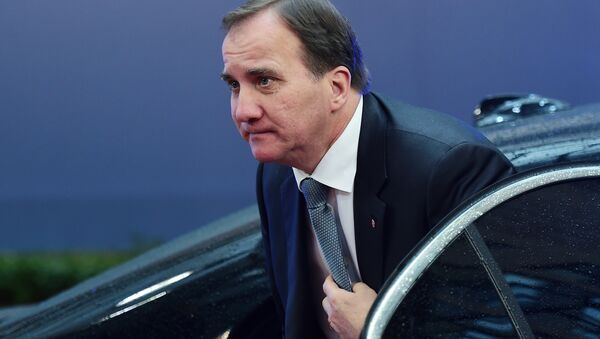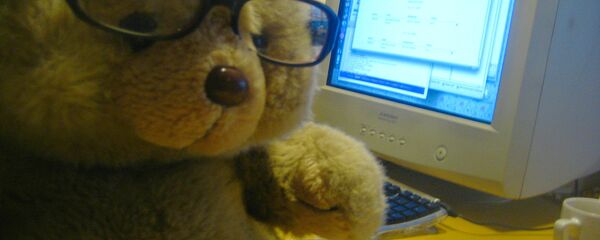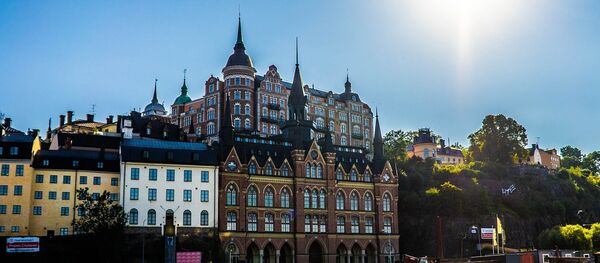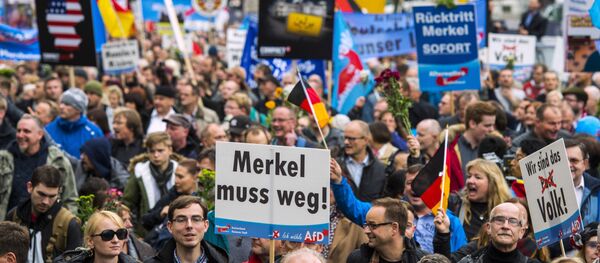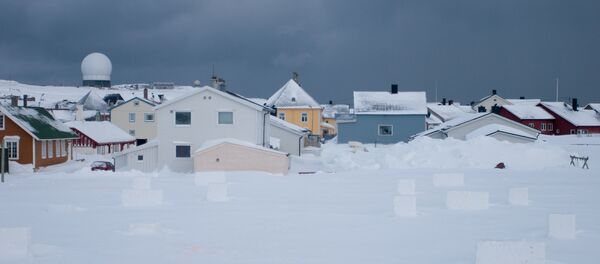The Prime Minister's comments followed a recently released report by the Swedish Institute of International Affairs, which claimed that Russia was using 'fake news' and 'propaganda' to influence public opinion and decision-making.
Speaking to Radio Sputnik, Jan Oberg, a peace studies researcher and the director of the Lund-based Transnational Foundation for Peace and Future Research, explained that Prime Minister Lofven left out something important.
"It's ok that he's saying that, in my view," Dr. Oberg noted. "The problem is that he doesn't say that he's also concerned about the possibility that others will influence the Swedish elections. I think the United States has the world record in interfering politically in other countries around the world. We have the NSA, we have them listening in to allies and friends, such as the private phone of Angela Merkel."
"We should be guarding in all directions – north, south, east and west, if we are a sovereign state doing security – that's fine. But why do they exclude to mention that the largest listener, the largest hacker, the largest interventionist and the largest country in terms of regime change?" Oberg asked.
The peace researcher noted that in recent years, an odd wave of anti-Russian hysteria has flooded over Sweden, reaching Cold War levels, or perhaps even beyond. "I am surprised myself," Oberg noted. "I am old enough to remember the first Cold War – I grew up through it."
What's interesting, he noted, was that "at that time, the Warsaw Pact's military expenditures were about 75-80% of NATO's." Today, Russia spends just 8% of what NATO does, "having lost the Pact, so to speak…That is, [Russia] is ten times smaller a threat in terms of military expenditures. And yet the hysteria is going on like mad."
In Sweden, Oberg explained, the 'Russian threat' was blown up, firstly "because we are lacking an identity after not being a neutral country anymore – not having a disarmament policy like we had during Olof Palme's days," and secondly, "because there are circles in Sweden who want Sweden to join NATO, which some of us, and the majority of the Swedish people are still against."
"I think most of these stories that come out now – hacking, or whatever happens to be, is a pretext for what we do ourselves; to cover up for what we do ourselves and then go on doing it ten times worse," the researcher argued. "It's human nature too, but it's certainly [also] the military, industrial, media, academic complex – a tiny elite that is out of democratic control in most countries."
Accordingly, Oberg stressed that "it is absolutely necessary" for anyone seeking to do "good media work…to cover all sides in the conflict. I do not rely on Western media, and I do not rely on anybody's media if I see that the news is only based on one source…I'm not saying that that may be a lie; what I'm saying is that there are by all probability one, two, or five other angles."
"So if I was a journalist, trying to tell my readers or viewers what is going on in Syria [for example], I would take Western media, Turkish media, Russian media, Syrian media, Saudi Arabian media, and then I would try to tell my readers or viewers that there were so many views and perspectives – and to judge for themselves what they think is the truth."
For example, "anybody who says that Assad is a 'dictator', or that [Syrian authorities] are not a government, but a 'regime', is part of a propaganda machine. A journalist should call him the president; a journalist should call it the government. But they don't. They are already into the propaganda themselves." Unfortunately, that is a problem that "can be found in many countries," Oberg said.
Finally, "the other very important thing is: what is left out – what is not said," the researcher noted. "One of the most important things I teach my students in mass media is…look for what the story does not tell you." This is highly relevant in the case of Prime Minister Lofven's recent comments about the supposed danger posed by Russia, Oberg noted.

